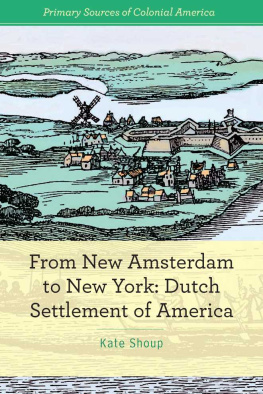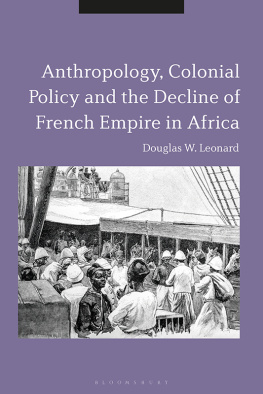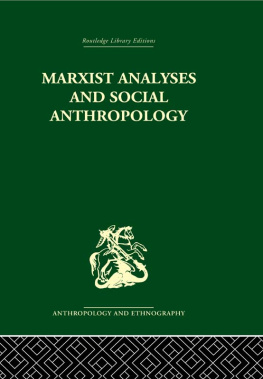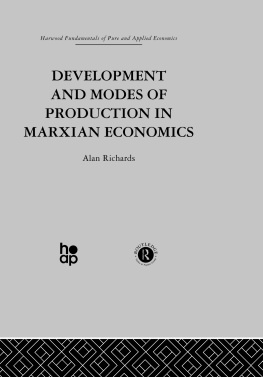Old modes of production
and capitalist encroachment
Monographs from the African Studies Centre, Leiden
Old modes of production
and capitalist encroachment
Anthropological explorations
in Africa
Edited by Wim van Binsbergen and
Peter Geschiere
First published in 1985 by
Kegan Paul International
This edition first published in 2011 by
Routledge
2 Park Square, Milton Park, Abingdon, Oxon, OX14 4RN
Simultaneously published in the USA and Canada
by Routledge
711 Third Avenue, New York, NY 10017
Routledge is an imprint of the Taylor & Francis Group, an informa business
African Studies Centre, Leiden, 1985
All rights reserved. No part of this book may be reprinted or reproduced or
utilised in any form or by any electronic, mechanical, or other means, now
known or hereafter invented, including photocopying and recording, or in
any information storage or retrieval system, without permission in writing
from the publishers.
British Library Cataloguing in Publication Data
A catalogue record for this book is available from the British Library
ISBN 10: 0-7103-0089-1 (hbk)
ISBN 13:978-0-7103-0089-8 (hbk)
Publisher's Note
The publisher has gone to great lengths to ensure the quality of this reprint
but points out that some imperfections in the original copies may be
apparent. The publisher has made every effort to contact original copyright
holders and would welcome correspondence from those they have been
unable to trace.
To Gerrit Grootenhuis
Contents
Further developments in the role of the colonial state:
The articulation of modes of production as a process
Figures
Notes on contributors
Wim van Binsbergen (1947) read social and cultural anthropology and Third World sociology at the Municipal University of Amsterdam. He conducted field-work in Tunisia, Zambia, and Guinea-Bissau, and received a doctorate from the Free University of Amsterdam. He taught at the University of Zambia, the University of Leiden and the University of Manchester, and is now Head of the Department of Political Science and History, African Studies Centre, Leiden.
Peter Geschiere (1941) read history and social-cultural anthropology at the Free University, Amsterdam, where he also received his doctorate. He conducted field-work in Tunisia and Cameroon. He taught at the University of Kisangani, Zare, and is now Senior Lecturer in Social Anthropology at the Free University, Amsterdam.
Klaas de Jonge (1937) read social sciences and Third World demography at the Municipal University of Amsterdam and the Ecole Pratique des Hautes Etudes, Paris. He conducted field-work in Paris, Tanzania and Senegal. He was a Research Officer at the African Studies Centre, Leiden, and now combines social research and political practice in Mozambique.
Jos M. van der Klei (1942) read social and cultural anthropology and Third World sociology at the Municipal University of Amsterdam. He conducted field-work in Tunisia and Senegal. He was a Research Officer at the African Studies Centre, Leiden, and now teaches methods of anthropological field-work at the Free University, Amsterdam.
Reini Raatgever (1946) read Third World sociology at the Free University, Amsterdam. Already as a student she developed an expertise on Marxist theory, in combination with active political practice. At the African Studies Centre, Leiden, she did library research into women and rural development in Africa. She taught at the Free University, Amsterdam, and now lives in Paris.
Simon Simonse (1943) read social and cultural anthropology at the University of Utrecht and the University of Leiden. He held research appointments at the Municipal University of Amsterdam and the African Studies Centre, Leiden. He taught at a teacher-training college, Zare, at Makerere University, Uganda, and at a College for Social Work, Amsterdam. He is now Senior Lecturer in Anthropology, University of Juba, Sudan.
Preface
Wim van Binsbergen and Peter Geschiere
This book is the result of a long series of meetings of the Amsterdam Work-group for Marxist Anthropology, extending over a number of years. Early in 1977, the initiative to found this work-group was taken by Simon Simonse. His interest in French Marxism had already resulted in his Dutch translation of Nikos Poulantzas's Les Classes sociales devant le capitalisme aujourd'hui, published with Socialistiese Uitgeverij Nijmegen (SUN). The members of the work-group were recruited according to the time-honoured anthropological principle of the personal network. The first to be enlisted were Wim van Binsbergen, Klaas de Jonge and Jos van der Klei; at the time, all were attached to the African Studies Centre, Leiden, some fifty kilometres from Amsterdam, where all work-group members lived and where meetings invariably took place. Soon Johan van der Walle joined the work-group. He was then working on a Dutch translation, commissioned by SUN, of Emmanuel Terray's Le Marxisme devant les socits primitives, regrettably, this translation was never published. Finally, Reini Raatgever and Peter Geschiere joined the work-group; they were then in the process of discovering French Marxist anthropology in the context of a seminar led by Geschiere at the Free University, Amsterdam.
By 1977, the work of Meillassoux, Godelier, Rey, Terray and other French Marxist anthropologists had hardly met with any recognition in the Netherlands. For the members of our workgroup, getting acquainted with the ideas of these anthropologists was a rewarding and thrilling experience. Often the discussions went on well into the small hours, and our enthusiasm increased as our glasses were emptied. From the outset our discussions were focused on concrete matters: time and again the more general insights offered by the French School were tested in the light of our own field-work experiences which basically meant Africa (except for van der Walle, whose research had been on the Dutch and German peasantry). Reini Raatgever had not yet herself done any field-work, but she more than made up for this by a profounder knowledge of the works of Marx and Althusser. In this way, she increasingly came to function as the Marxist conscience of our group. It became apparent that the French School had certainly not yet managed to propound a fully-fledged theoretical scheme. None the less, its general insights turned out to open up new and unexpected perspectives upon our own field-work materials. Moreover, we found that precisely the confrontation with our empirical data, collected from a different theoretical perspective, afforded all sorts of opportunities to criticize and further develop the French theories. In this respect the French School's body of ideas represented for us no less than a breakthrough in anthropological theory, as is clear from the publications of the members of our work-group since 1977, in this volume and elsewhere. In 1980 the work-group, in association with the African Studies Centre and the Free University, invited Claude Meillassoux to the Netherlands for a series of lectures. Similarly, in 1981 Terray came to Amsterdam and Leiden. Both occasions confirmed that the work of these anthropologists can lead to stimulating discussion precisely because of the open, non-dogmatic character of its theorizing.







